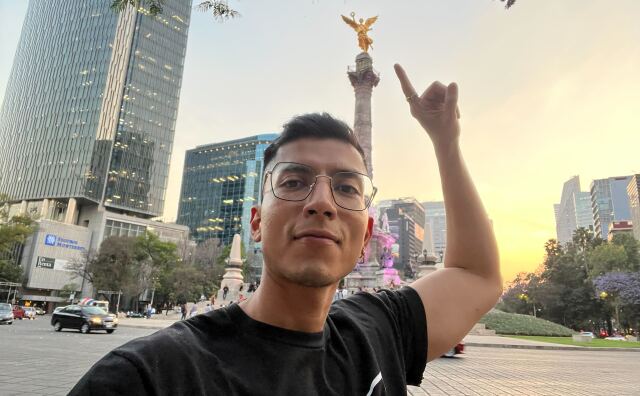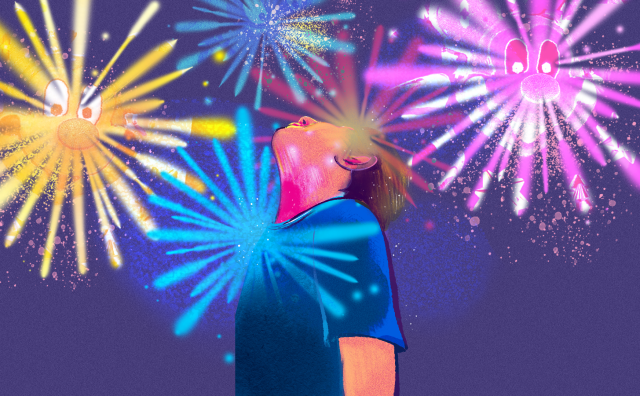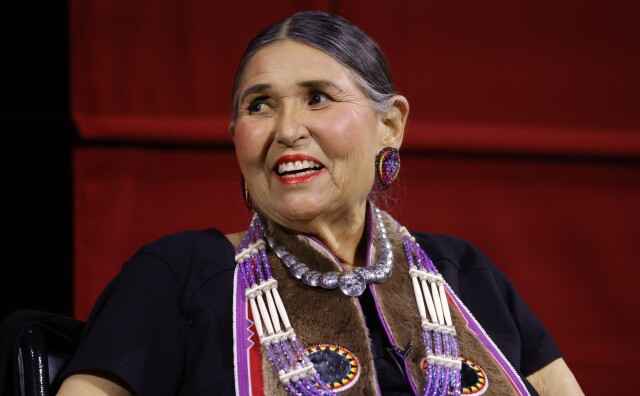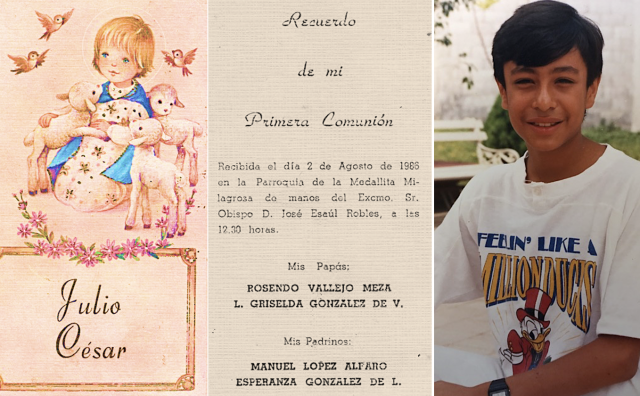As an emergency physician in the largest trauma center in Los Angeles, I'm often asked, "What's the craziest thing you've seen?"
-
From June 2020 to July 2021, we published your stories each week to continue important conversations about race/ethnicity, identity and how both affect our lived experiences. We now have a new series Being American, which is again soliciting your essays.
-
Read:
The expectation is gory stories of trauma, or TV-worthy "ER" episodes. Yet for me, these are never what come to mind. It's often the more subtle medical mysteries that have kept me up at night or, as of late, the immense tragedy that has devastated the Latino community of Los Angeles.
Day to day, patients like mine suffer the consequences of inequality out of the public eye. More recently during this pandemic, though, their likenesses have been captured very publicly -- in widely seen photographs posted in news publications and on social media that convey them in their most vulnerable state: critically ill and dying. Some of them in our own emergency department.
"Consent has been obtained," the viewer is reassured. Yet, in my experience, even consent for medical treatment is not as simple as a "yes" response.
'DID MY PATIENT UNDERSTAND?'
My family and I are immigrants from El Salvador. We moved to the United States when I was 10 years old. So I see myself, and my relatives, reflected in my largely immigrant, Latino patients -- many of whom are low income, have limited English proficiency, and have low health literacy and limited access to care.
To many of my patients, I am their primary care doctor, and our large public hospital emergency department is their clinic.
Though not new, their barriers to health and the disproportionate adverse outcomes that result are now more apparent than ever -- and have been well documented in media coverage as the pandemic has raged.

From overcrowded small living spaces, and the inability to carry out their manual labor remotely, to a lack of accurate health information in their language with no primary care available, the odds have been stacked against them.
But back to consent.
For months, I have grappled with the question of informed consent for intubation in such a challenging setting requiring quick decisions -- and for months, as I have followed up on patients I had admitted in critical condition, I've been met with a grim alert of their passing. Only a few made it off the ventilator after months of complications, and even fewer were discharged.
I've asked myself each time: Did my patient understand the disease and the expected outcomes? Did they understand the various means for oxygen support, and what intubation and being on a ventilator means? Did I use the right terms? Did they even have the mental capacity in their condition to understand and consent for anything when their oxygen level was so low?

As with most of my patients in our hospital, I was also speaking to them in Spanish. As a native speaker and trained medical interpreter and researcher, I'm comfortable in my language skills. But the complexity of these conversations remains.
I'm one of only a small number of physicians here who are native Spanish speakers, which means these challenging conversations are often carried out by providers with limited skills, or using semi- to un-trained bilingual staff as ad hoc interpreters.
Fully understanding the limitations to consent for this vulnerable population, seeing media images of patients in such a critical distressed state makes me deeply uncomfortable.
Can these patients or their families truly understand what they are consenting to? I can't help but think of such pictures as voyeuristic. My patients' humanity and suffering is gawked at, but not truly understood, much in the way that images of Black lives being taken by police were traumatically played over and over this past year during the short-lived attention placed on the Black Lives Matter movement.
WHAT MY PATIENTS REALLY NEED
Regardless of good intentions, the photographer's lens yields little more than what some refer to as "trauma porn" -- a misguided activism that does not benefit the subject in any tangible way.
Some might seek a glimpse into the "provider perspective," and I can understand that. But it makes me wonder, would this glimpse into human suffering be so readily possible in communities with majority affluent, white patients? Should we reduce the lives of these complex individuals to provocative pictures on what may be their deathbed to applaud the efforts of what are still largely white saviors? Would we want our own family members showcased in this way?

I intimately understand the sacrifices that we providers have made in the past year. We've continually shown up, aware of the risk of contracting this deadly disease and passing it on to our loved ones -- many even going months apart from their own young children to avoid that scenario, while others have contracted the virus themselves, or have had family members pass from COVID-19.
But we can't just applaud the providers while so many of our patients have died, and are still dying. Certainly not in a community of disadvantaged patients who have been so disproportionately affected.
This only serves to further silence my community. It is a disservice to shift the focus of the conversation away from those who have most deeply suffered, while this virus claims so many of their lives -- with Latinos dying at close to triple the rate of their white counterparts.
Even as the pandemic "surge" ebbs, more quickly in some communities than others, this disparate death rate remains. Moving forward, what I'd like to see is real action from our government to help the communities that have suffered most: to continue funding unemployment, expand benefits, and increase the number of those covered; rent moratoriums so that people who are vulnerable, poor, and can't work from home don't have to risk exposure in dangerous jobs to avoid homelessness; to improve baseline healthcare access so we can reduce the disproportionate rate of comorbidities that contribute to worse outcomes from COVID-19; and to sharply increase vaccination rates in the communities most devastated.
As a doctor, I don't need more recognition for carrying out my duty. My patients don't need a camera on them while they're dying. We need measures to prevent their untimely, unjust deaths.
ABOUT THE AUTHOR:
Oswaldo (Oz) Hasbún Avalos, M.D. is an emergency medicine physician. He is a nationally recognized medical interpretation and language access researcher and advocate currently practicing in Los Angeles. Having moved to the U.S. from El Salvador at age 10, he has been committed to improving the quality of medical care for patients with limited English proficiency since his undergraduate studies at Stanford University.
Oswaldo has been recognized as a White House Champion of Change by the Obama administration and is the recipient of several awards, including from the American Medical Association. He is also a United Health Foundation Diverse Scholar and a Paul and Daisy Soros Fellow.









